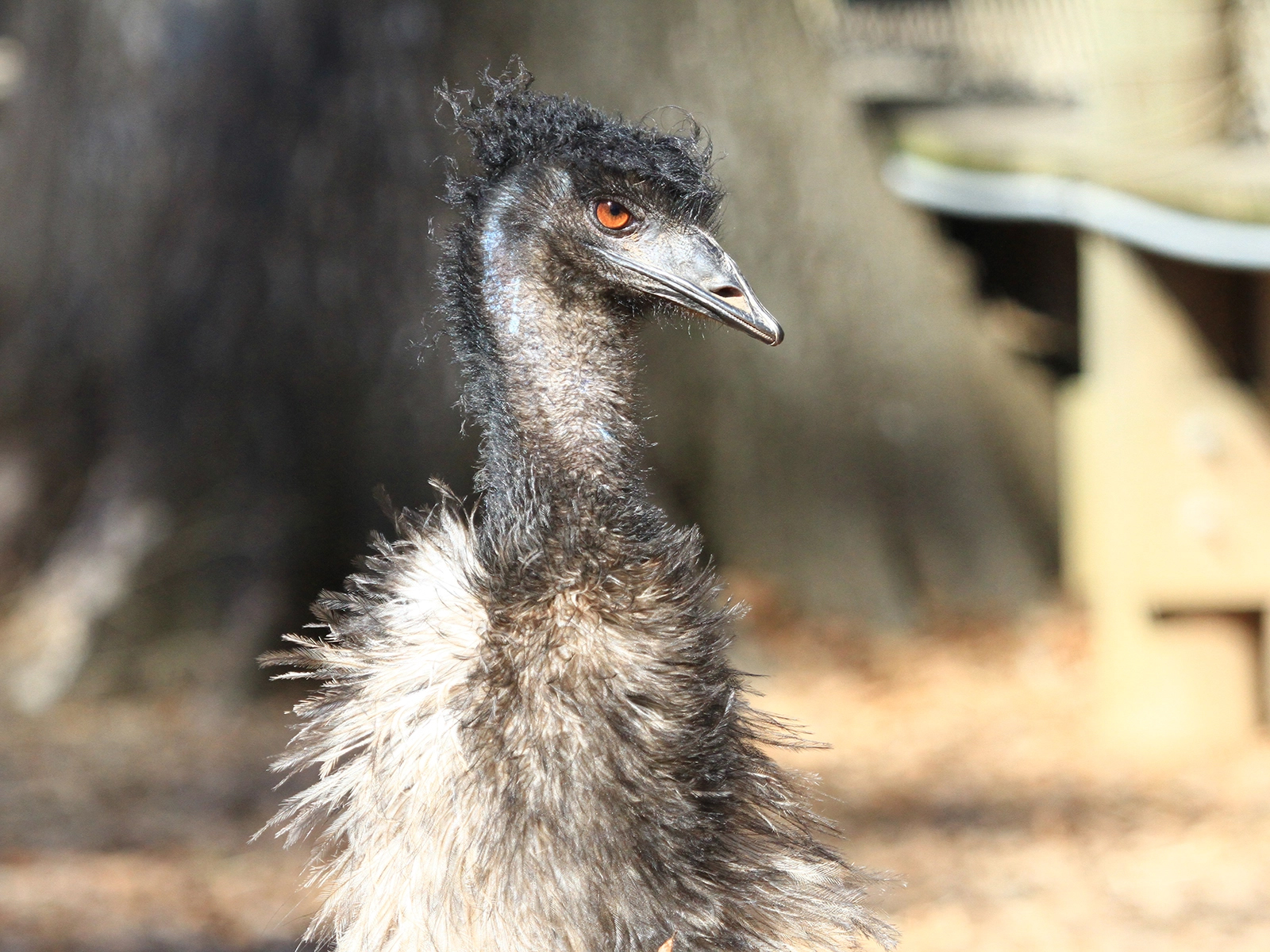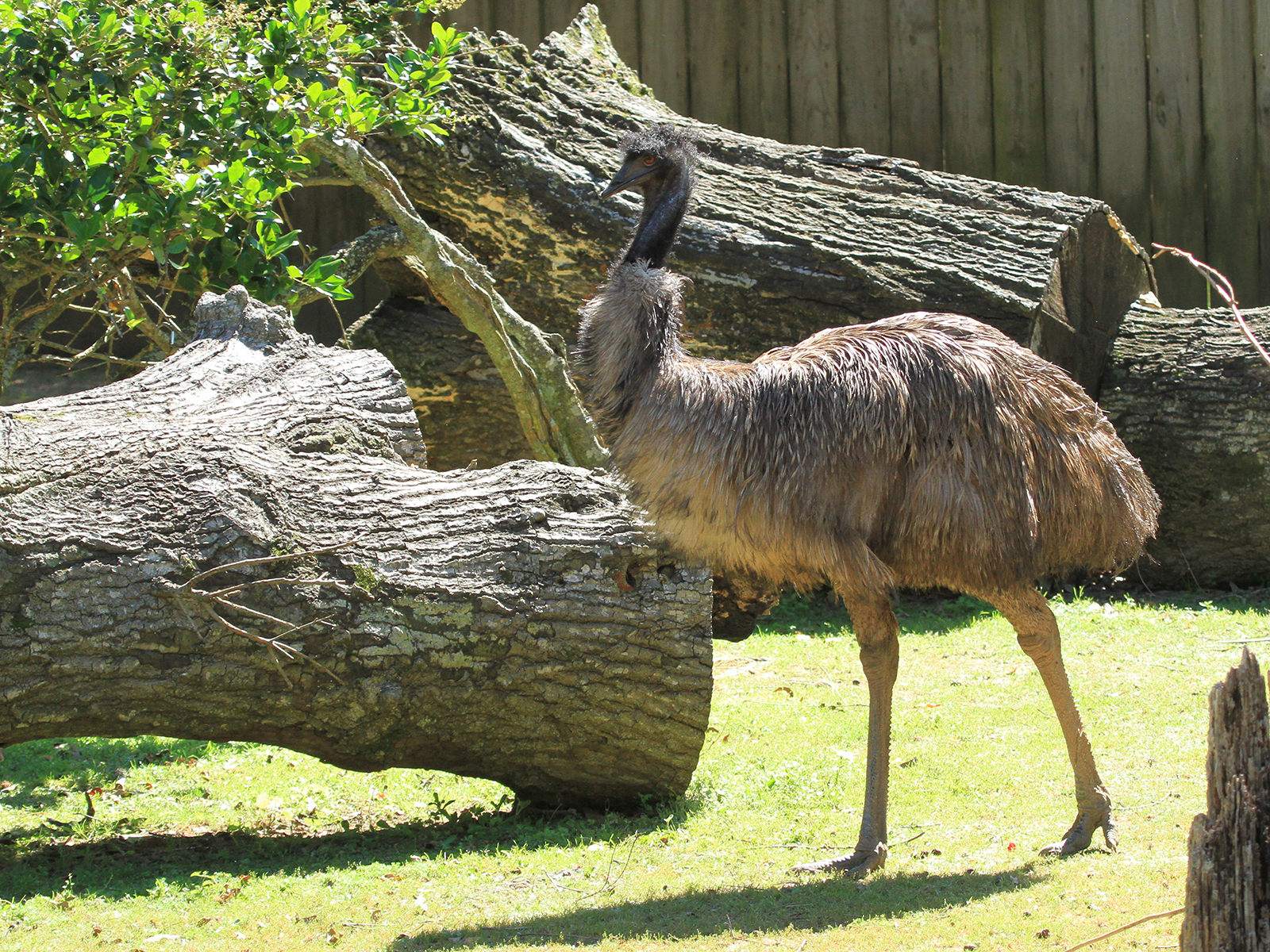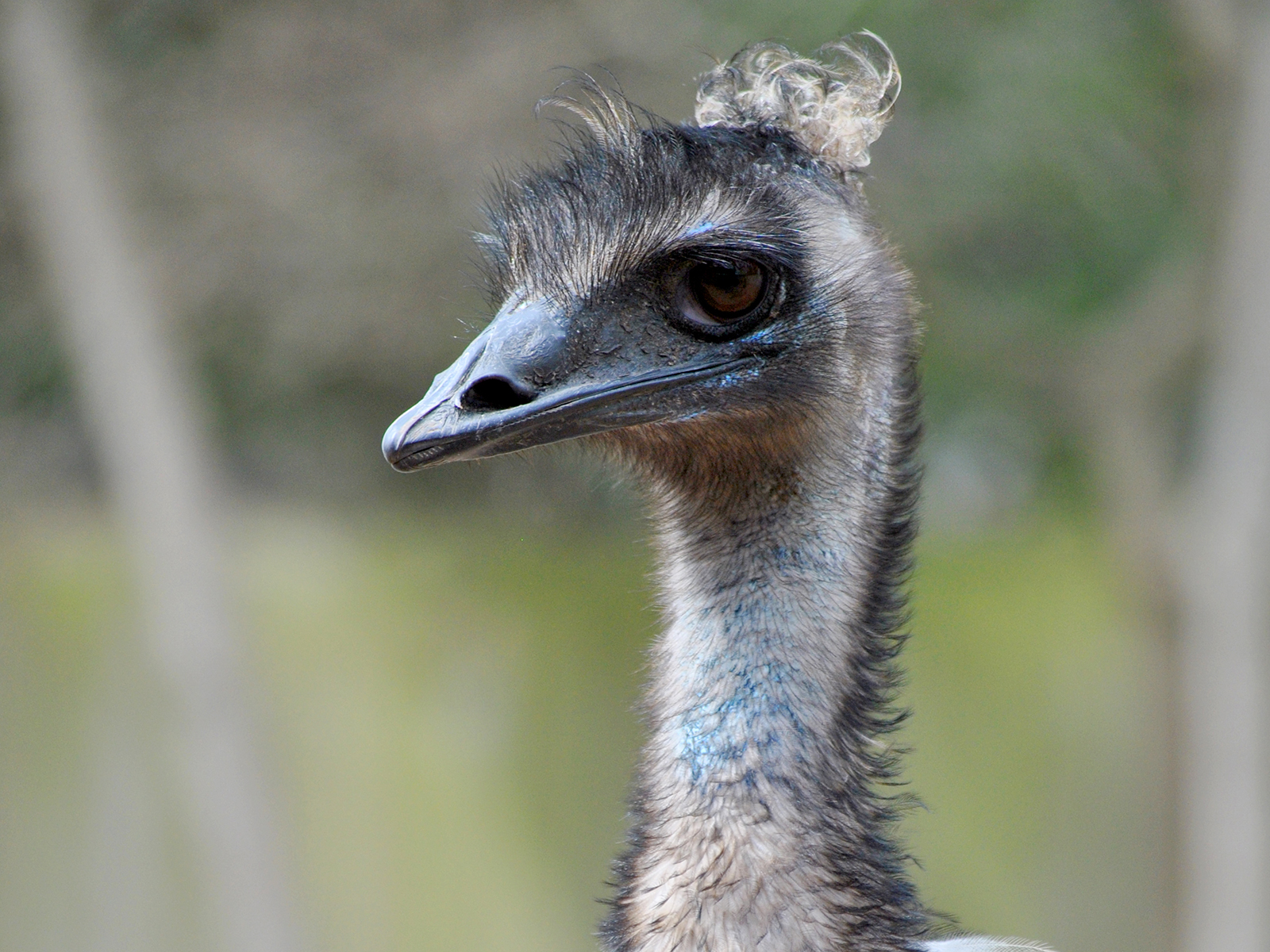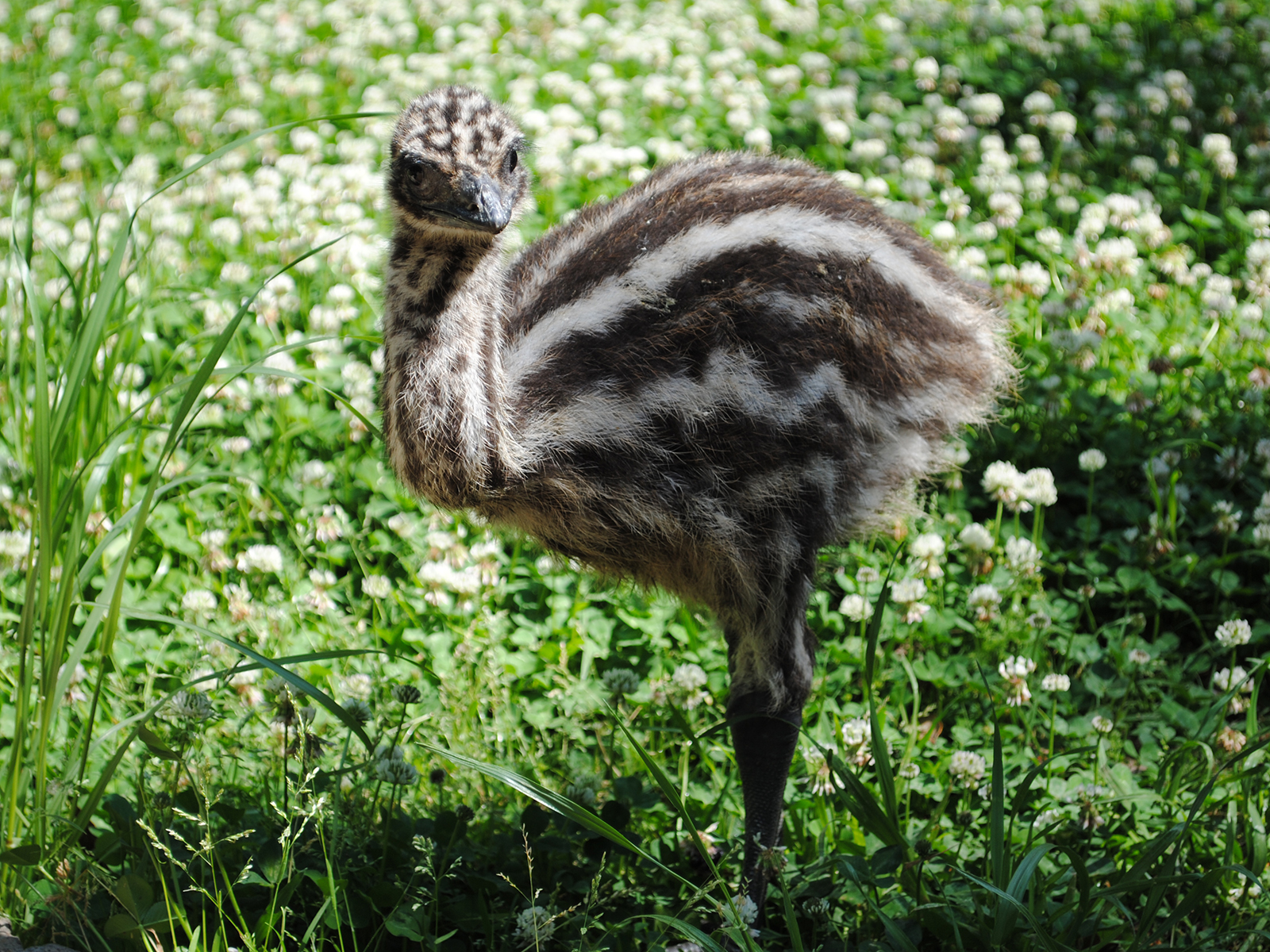Emu
Dromaius novaehollandiae
Class
Aves
Order
Casuariformes
Family
Dromaidae

Aves
Casuariformes
Dromaidae
Australia
Length: 4.9 - 6.2 ft
Weight: 60 - 120 lbs
Plains, scrub, open woodlands, alpine pastures, semi-desert
Clutch: 5 - 15 eggs
Incubation: 8 weeks
Fruit, grains, grasses, and insects
Least Concern

A large flightless bird, the emu's wings are rudimentary and used only for display. Just like hairs, their feathers grow from follicles. Their feet have three toes and fewer bones and muscles than those of flying birds. It can run up to 30 mph, reaching strides of 9 ft long. Their strong legs also allow the bird to jump 7 feet (2.1 meters) straight up. They are good swimmers.

The emu has a pouch in its throat that is part of the bird's windpipe and is used for communication. Their deep booming calls can be heard up to 1.2 miles away.

The male Emu is the sole caregiver, incubating the eggs for eight weeks while rarely moving from the nest. Once hatched, the brown-and-cream-striped chicks are highly independent (precocial), walking within minutes. Though they leave the nest early, they stay with their father for approximately 18 months. Emus are fully grown between 12 and 14 months, reaching sexual maturity at around two years.